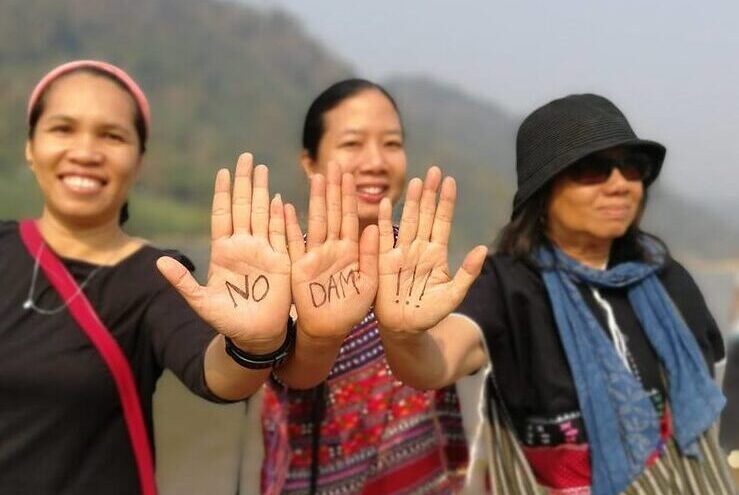WATER IS LIFE.
Women sustain life through their relationships to water. As the primary providers of water in most households and communities, women are tasked with securing, maintaining, and using water resources in agriculture, fisheries, forest and land management.
Despite persistent gender inequalities that limit women’s decision-making power over water management, grassroots women river guardians are working to address pressing challenges that jeopardize rivers and waters around the world.


WHAT'S AT STAKE
Only 17% of Earth's free-flowing rivers are protected.
Since 1970, 85% of global freshwater populations have declined due to the degradation of rivers.
Women are under-represented in river management and decisionmaking. Deep inequalities persist from the household level to regional and national governance, with men holding a majority of the decision-making power and influence.
OUR FOCUS
In 2019, International Rivers held a Women and Rivers Congress that convened women leaders to strategize and identify ways to advance shared efforts to protect rivers around the world and the lives that depends on them. During this gathering, there was a resounding request for more opportunities to build capacity, share best practices, and build a powerbase among women river protectors in the International Rivers' global network.
In recognition of the critical role that women play in shaping water solutions, WEA and International Rivers partnered to offer the Women and Rivers Accelerator (WARA). By supporting women river guardians, WARA generates lasting improvements for rivers and water sources and build networks to share best practices and raise awareness of women-led water solutions.
With women on the frontline, we can chart a new, more equitable and sustainable path forward for our most precious shared resource.

WEA and International Rivers' Signature Women & Rivers Accelerator Program
Through the Women and Rivers Accelerator, women river guardians gain training, resources, and mentorship to strengthen their advocacy, catalyze their solutions, and deepen their impact.
During the program, women river protectors:
- Share best practices for river and water protection across regions
- Scale the quantifiable impact of their regional initiatives that protect rivers and the rights of communities that depend on them
- Bolster women’s environmental leadership and engagement nationally and internationally by strengthening women’s access to networks, spheres of influence, information, and resources.
- Grow public awareness and visibility for key campaigns and causes via our shared networks.
- Strengthen campaigning for rivers in ways that are gender-responsive as leaders become trainers in International Rivers’ Transforming Power gender guide
OUR PARTNERSHIP

International Rivers has been at the heart of the global struggle to protect rivers and the rights of communities that depend on them since 1985. International Rivers works with an international network of dam-affected people, grassroots organizations, environmentalists, human rights advocates, and others who are committed to stopping destructive river projects and promoting better options. Based in four continents, International Rivers staff has expertise in big dams, energy and water policy, climate change, and international financial institutions. International Rivers supports partner organizations and dam-affected people by providing advice, training and technical assistance, and advocating on their behalf with governments, banks, companies and international agencies.

Women’s Earth Alliance (WEA) is a global organization on a mission to empower women’s leadership to protect our environment, end the climate crisis, and ensure a just, thriving world. WEA’s signature Accelerators provide cohorts of women leaders with capacity-building and training, funding, and mentorship to strengthen their advocacy, catalyze their solutions, and deepen their impact. Through these programs, leaders connect across regions and issues, sharing knowledge and building coalitions. WEA Accelerators strengthen the gender and climate justice movement by fostering collaboration, knowledge-sharing, and strategic organizing among women leaders at the frontlines of the climate crisis.


